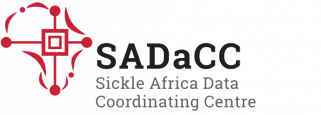 Dr Ackerman is an NIH-Lasker Clinical Research Scholar, Clinical Tenure Track Investigator, and Chief of the Physiology Unit within the Laboratory of Malaria and Vector Research, National Institute of Allergy and Infectious Diseases.
Dr Ackerman is an NIH-Lasker Clinical Research Scholar, Clinical Tenure Track Investigator, and Chief of the Physiology Unit within the Laboratory of Malaria and Vector Research, National Institute of Allergy and Infectious Diseases.
The Physiology Unit studies the mechanisms by which endothelial alpha globin regulates signaling between endothelial cells and vascular smooth muscle cells in human resistance arteries. We seek to understand how common structural variants in the human alpha globin gene loci (i) affect expression of alpha globin in the vascular endothelium; (ii) alter the arterial response to vasoactive stimuli; and (iii) modify susceptibility to vascular complications of chronic and infectious diseases. These lines of investigation offer an opportunity to explore the long-held observations that alpha globin gene deletions reduce the severity of malaria infection and delay or prevent the vascular complications of sickle cell anemia. By understanding how alpha globin regulates cell-cell signaling in the vessel wall, we may be able to develop new strategies to modulate human arterial function and potentially treat or prevent vascular diseases.
Dr Ackerman's research training began under the mentorship of Stephen Kaattari at the Virginia Institute of Marine Science. There he studied the host response to infection with the apicomplexan parasite Perkinsus marinus, a cause of hemolytic anemia in the Eastern oyster. He went on to study human genetic variation in cytokine genes (TNF, IL-8) and the impact of that variation on susceptibility to inflammatory and infectious diseases with Dominic Kwiatkowski at the Wellcome Trust Centre for Human Genetics, University of Oxford. He earned a medical degree from Harvard Medical School and completed an Internship and Residency in Internal Medicine at Massachusetts General Hospital. He came to the NIH Clinical Center as a Clinical Fellow in the Critical Care Medicine Department and became board certified in Internal Medicine and Critical Care Medicine. In 2011, he was awarded a NIAID Transitional Program in Clinical Research Award to study the metabolic determinants of nitric oxide signaling and endothelial dysfunction in severe malaria. He identified reduced arginine synthesis, impaired clearance of methylarginines, and oxidation of tetrahydrobiopterin as contributors to impaired nitric oxide signaling in severe malaria. He began his tenure-track work on endothelial alpha globin in the NHLBI Sickle Cell Branch in 2014. He moved to the NIAID Laboratory of Malaria and Vector Research in 2017 to expand his clinical research program at the NIH Clinical Center and to engage with the NIAID International Centers for Excellence in Research.
Dr Ackerman has mentored students and fellows at all levels of training. He seeks to provide opportunities for individuals from backgrounds that have previously been underrepresented in science by mentoring trainees in the NIH Academy Enrichment Program and the Intramural NIAID Research Opportunity program. He serves as an Advisor in the NIH Medical Research Scholars Program and on the selection committee for the Malaria Research Program's Collaborative Fellowship.
Awards: Dr Ackerman was named an NIH-Lasker Clinical Research Scholar in 2014. He received the NIAID Mentor of the Year Award in 2014 and the NHLBI Director's Learning Environment Award in 2017.

